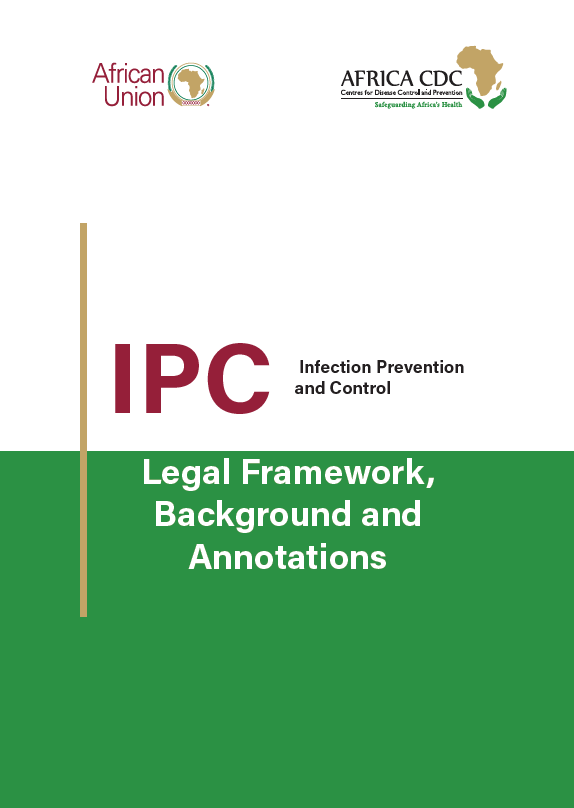PREFACE
In healthcare facilities, Infection Prevention and Control (IPC) requires a scientific approach to prevent harm caused by infection to patients and healthcare workers. Healthcare-acquired infections (HAIs), which include healthcare-associated antimicrobial resistance (HAI-AMR), are a major threat to health and safety. First, health systems have an ethical duty to “do no harm” when patients receive medical care and the responsibility to protect their employees, volunteers, and visitors. This is an issue of urgency given the expansion of universal healthcare in Africa. Second, Member State signatories to the African Charter on Human and Peoples’ Rights have obligations, including under Article 16, to protect the health of their people. Third, healthcare facilities accelerate and amplify emerging infectious diseases, such as COVID-19 and Ebola. Preventing such infections through the implementation of a routine IPC programme can help limit disease transmission during community outbreaks. Fourth, healthcare facilities help drive emergence and transmission of antimicrobial resistant (AMR) infections, due to the heavy use of antimicrobial agents in the treatment of infections. Effective IPC programmes can reduce the prevalence of AMR infections in hospitals.
As such, healthcare facilities play a key role in effective preparedness and response. By ensuring IPC standards are implemented appropriately, healthcare facilities can provide safe services not only on a daily basis but also when there is a surge in healthcare need.
